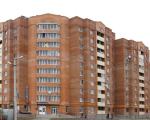The contract for the gratuitous rental of an apartment: how to draw up and execute
A gratuitous apartment rental agreement is a document that gives the borrower the right to live free of charge in the transferred residential premises. A similar agreement is concluded in cases where, for example, close relatives of the owner of the apartment are homeless or he plans a long absence and prefers to transfer his apartment to those he trusts.
It must be borne in mind that the phrase “free rent”, which is often used in everyday life, is unacceptable for civil law, according to the Civil Code of the Russian Federation, the correct name for such an agreement is a contract for gratuitous use or a loan, so the owner of the apartment in such an agreement will be called the lender, and the tenant - borrower.
The right to transfer an apartment for gratuitous use belongs to its owner, as well as another person who acts on behalf of the owner by proxy or manages the apartment on the basis of, for example, a trust management agreement.
According to the Housing Code of the Russian Federation, the tenant and family members living with him, by mutual agreement, can transfer housing that is in social rent for free use, while they must notify the local government that owns the apartment about the appearance of a temporary tenant, but the consent of the representatives no authority is required.
There is only one restriction: it is possible to settle temporary tenants without the permission of the landlord only if the accounting norm of living space per person is observed (for example, in Moscow such a norm is 10 square meters, and in Belgorod - 15 square meters).
The advantage of a written lease agreement over an oral one
Civil law does not require the mandatory signing of written documents for the conclusion of contracts between individuals, so such an agreement can be concluded orally, and it will be recognized as valid. The validity of the contract means only that in court, proving its existence, the parties can refer to the testimony of witnesses.
A free-of-charge apartment rental agreement drawn up on paper will save the parties from possible misunderstandings in the future, and besides, it has its advantages:
- Guarantees the timely payment of utility bills by the borrower, the use of living space only for its intended purpose, and the fact that unauthorized persons will not live in the apartment.
- Guarantees the inviolability of another part of the apartment if the borrower is allowed to use only a certain part of the apartment (for example, only the bedroom or living room).
- The act of acceptance and transfer, which is contained in the annex to the contract, fixes the state of the lender's property, which in the future will save the parties from disputes and proceedings regarding its safety.
- If the owner of the apartment dies, then his heirs will not be able to evict the tenants until the end of the contract.
- If the apartment burns down, is flooded or robbed, the borrowers cause any harm to the neighbors (for example, they flood the apartment of the neighbors from below), it will be easier to establish the measure of responsibility of each of the parties with the agreement.
- The owner of the apartment will not be suspected of non-payment of taxes.
- A written contract is the basis for obtaining temporary registration by a tenant.
- If the owner of the apartment sells it or rents it to other tenants, then they will also not be able to evict the borrowers until the expiration of the contract.
 When drawing up an agreement for the gratuitous rental of an apartment, the parties must be guided by the provisions of paragraph 2 of Article 689 of the Civil Code of the Russian Federation, the agreement must contain the following information:
When drawing up an agreement for the gratuitous rental of an apartment, the parties must be guided by the provisions of paragraph 2 of Article 689 of the Civil Code of the Russian Federation, the agreement must contain the following information:
- Essential condition: the subject matter of an agreement, without which it is considered non-concluded. In such an agreement, the condition will be the transferred apartment, it is necessary to describe the dwelling in detail: cadastral number, floor, exact address, number of living rooms, total area, part of the area that the tenant can use (if not the entire apartment is transferred).
- Contract time: you must specify specific dates, otherwise the contract is considered concluded indefinitely. If the contract has expired, and the borrower continues to live in the apartment and the owner does not object, then the contract is considered extended by law.
- Persons who will live in the apartment: all members of the family will have equal rights with the borrower when using the dwelling.
- Terms of use of the apartment: the borrower must use the apartment only for its intended purpose (for living), he cannot organize in the apartment, for example, a warehouse, a small office, a gym, a shop.
- Rights and obligations of the parties: it is necessary to clarify who pays for utilities, carries out cosmetic and major repairs, determines the rights of the parties regarding improvements to the apartment made by the tenant. The owner of the apartment may restrict the borrower's right to move in temporary tenants without his knowledge, prohibit the tenant from renting out the apartment, the tenant may indicate in the contract that the owner of the apartment is allowed to come and check the safety of the dwelling at any time, but not later than a certain hour.
- Nuances arising from the transfer of housing: the apartment is usually handed over with furniture, household appliances and other things that are better described in advance and even photographed, as well as describe the general view of the apartment. When checking in, it is advisable to check the serviceability of all machinery and equipment in the presence of both parties to the contract.
Resolution of disputes arising in unforeseen situations
According to the provisions of the Civil Code of the Russian Federation, in the event of theft, fire, flooding, gas explosion and in other cases, the fault lies with the borrower if he:
- Without the knowledge of the owner of the apartment, he allowed strangers to use housing.
- Violated the rules for using the apartment and property, which led to their death or damage.
- He could save the lender's property by sacrificing his own, but chose to save his property.
In all other cases, the owner of the apartment is responsible for the loss or damage to property, who is also liable for damage caused to third parties (for example, flooding of the neighbors' apartment), unless he can prove that this happened due to gross negligence or the intention of the borrower.
Early termination and cancellation of the contract
 The cases in which the parties may demand early termination of the contract for the gratuitous rental of an apartment are listed in Article 698 of the Civil Code of the Russian Federation. Thus, the lender may demand early termination if the borrower:
The cases in which the parties may demand early termination of the contract for the gratuitous rental of an apartment are listed in Article 698 of the Civil Code of the Russian Federation. Thus, the lender may demand early termination if the borrower:
- Does not fulfill its obligations to maintain the property of the lender in proper condition.
- Uses property not in accordance with the terms of the contract and the purpose of the property.
- Transferred property to third parties without the consent of the lender.
- Significantly worsens the condition of the property or apartment.
The borrower may demand termination of the contract if:
- He discovered the shortcomings of the property that prevent its normal use (provided that the tenant did not know about these shortcomings at the time of the conclusion of the apartment lease agreement).
- The property will be in an unusable condition.
- The lender fails to fulfill its obligation to provide property.
- When concluding the contract, the owner of the apartment did not warn the tenant about the existence of third-party rights to the apartment or property.
Each of the parties to the contract has the right to refuse it (regardless of the period for which the contract was concluded) by notifying the other party one month in advance.
In what cases it is impossible to transfer housing under a gratuitous lease agreement
A contract for free rent of an apartment cannot be concluded if:
- The decision was made to demolish the entire house.
- There is no consent of other owners of the apartment.
- Ownership of the apartment is disputed in court.
- A decision was made to carry out a major renovation of the apartment.
- The property is uninhabitable.
 After signing the agreement, it must go through registration, which is carried out not in the bodies of Rosreestr (as, for example, when buying and selling an apartment), but in authorized organizations (for example, in Moscow, the Center for Rental Housing). The fact that the registration agreement has passed is confirmed by a stamp, which indicates the date of registration and the registration number of the agreement. The following documents must be submitted to complete the contract:
After signing the agreement, it must go through registration, which is carried out not in the bodies of Rosreestr (as, for example, when buying and selling an apartment), but in authorized organizations (for example, in Moscow, the Center for Rental Housing). The fact that the registration agreement has passed is confirmed by a stamp, which indicates the date of registration and the registration number of the agreement. The following documents must be submitted to complete the contract:
- Passports of the lender and the borrower.
- Statement.
- Single housing document.
- Title (donation agreement, sale and purchase agreement, inheritance certificate, court decision) and title confirming (certificate of ownership) document for housing.
If there are several owners, then it is necessary to obtain the consent of other owners to conclude an agreement, which can be confirmed either personally or in writing and certified by a notary.
In some cities (for example, in Moscow), the contract is drawn up on the same day when the parties applied with the application, in time it takes about 30 minutes, but you will have to pay about 1,500 rubles for registration.




